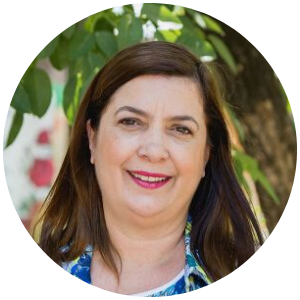According to estimates, the total combined consumption by all the human activity around the world is greater than the resources generated by the planet. In other words, every year, the Earth Overshoot Day is being reached earlier, and this overtakes the planet’s ability to generate those resources for that year. Scientists and international agencies have consistently reported on the root causes and consequences of climate change, alerting thus global leaders and the world about this phenomenon.
In this context, Sustainable Entrepreneurs have taken on impressive initiatives in their endeavor to solve environmental, social and economic challenges. This new model of social enterprise focuses on the wellbeing of human beings, the ecosystem as well as economic value. They show that it is possible to generate environmental and social value while at the same time providing a profitable business benefit. The business case for sustainable development is getting strong across industries. Companies and entrepreneurs are realizing that our natural and social capital can no longer be taken for granted, which becomes a motive to jump the ‘S curves’, through innovation and technological advancement.
READY TO SIGN UP? Click the button below.
Want to learn more? Keep reading.
ICSB GLOBAL CERTIFICATE SUSTAINABLE ENTREPRENEURSHIP MODULES
Module One – Sustainable entrepreneurship and SDGs: Led by Prof. Analia Pastran, Executive Director of Smartly, Social Enterprise on the SDGs and Mentor in Women in Public Policy Program, Cornell University, New York & Buenos Aires
This module examines how are changing the dynamics of the current marketplace and the entrepreneurial ecosystem: millennials/centennials (responsible consumers) and sustainable entrepreneurs (responsible production). Both are cognizant of the challenges ahead and are contributing to achieving the Sustainable Development Goals (SDGs). The overall implementation of the SDGs gives the opportunity for a new style of sustainable business development: conscious and responsible.
Module Two: Managing the missing entrepreneurs: a sustainable approach, Led by Dr. Adnane Maâlaoui, Head for Strategy and Management Department, IPAG Business School, Paris
This module examines how Entrepreneurship is above all a state of mind. It creates sustainable economic, social, and human value. This is a real sustainable inclusion solution at all levels for disadvantaged audiences as seniors, refugees, disabled, prisoners or ex-prisoners or homeless are targeted by this kind of concerns and solutions. Entrepreneurship would allow them to radically change their vision, future, and perspectives. We wanted to explore these different issues and the possible processes to put in place to promote this sustainable solution.
Module Three – Sustainable Fashion Accelerator, Led by Dr. LeeAnn Teal Rutkovsky, CEO of Impact Fashion Hub, USA
Sustainable fashion now transcends earlier definitions that focused solely on financial returns. In this module evaluates current challenges involved in adopting sustainable practices in the fashion industry: to Restore, Revitalize and Renew. The sustainable fashion accelerator is introduced: triangulation points of the user, supplier, policymaker creating global strategic partners establishing templates of change in eight key global cities.
Module Four – Sustainability & Women Entrepreneurship (Part I), Led by Diah Yusuf, VP ICSB Founder Indonesia Prima, Indonesia
This module will lead Womenpreneur to a better understanding of SDGs and the impact for the business, will explore business cases from women’s business and get learn or insight on how to make better business and how to make Sustainability Marketing Strategy to align with SDGs.
Module Five: Sustainability & Women Entrepreneurship (Part II), Led by Dr. Florence Nisabwe, Director of Lance D ́Afrique International, South Africa & Burundi
In Africa, Sustainable Social entrepreneurship initiatives focused on women face challenges such as entrenched attitudes and even gender-based violence – but at the same time, they are a proven way of overcoming the obstacles that women face as we will explore it in this module.
Module Six: B Corps and Government Regulations, Led by Winslow Sargeant, Incoming President of ICSB
This module examines the effect of the 4th Industrial Revolution on economies worldwide and the effect it will have in particular on small businesses. Various government bodies and regulations are examined for the positive effects they can have on business formation and nurturing entrepreneurship in the US economy.
Module Seven: Accelerators new intermediaries in the Sustainable Entrepreneurship Ecosystem, Led by: Maria Fernanda Andres, Business Director of Litoral Accelerator, Argentina
In recent years, a new platform of assistance to entrepreneurs called business accelerator has emerged. This module examines how these new platforms operate (enhancing startups’ competencies, as well as, enhancing their fundraising capability to scale up). Innovation intermediaries oriented towards sustainability can help create the necessary conditions by fostering more opportunities, expanding and linking startups’ behavior as part of a circular economic development strategy.
READY TO SIGN UP? Click the button below.
Want to learn more? Keep reading.
Meet the ICSB Global Social Entrepreneurship Certificate Professors

Analia Pastran
ICSB Certificate Director for Sustainable Entrepreneurship

Dr. Winslow Sargeant
ICSB President-Elect (USA)

Dr. Adnane Maalaoui
Managing Director IPAG Entrepreneurship Center

Diah Yusuf
Country Director at Niwi International Inc., Founder at Indonesia Prima

Dr. Florence Nisabwe
Director of Lance D ́Afrique International, South Africa & Burundi

Dr. LeeAnn Teal-Rutkovsky
CEO of Impact Fashion Hub, USA

Maria Fernanda Andres
Business Director of Litoral Accelerator, Argentina
Contact:
ICSB Executive Director: Dr. Ayman El Tarabishy (email: aymanelt@icsb.org) or tel: 202-468-3133
